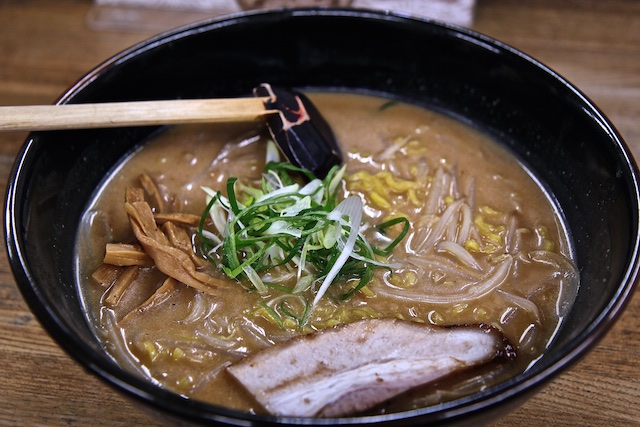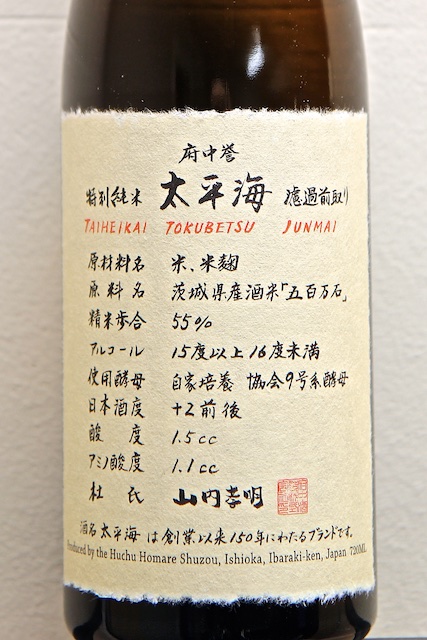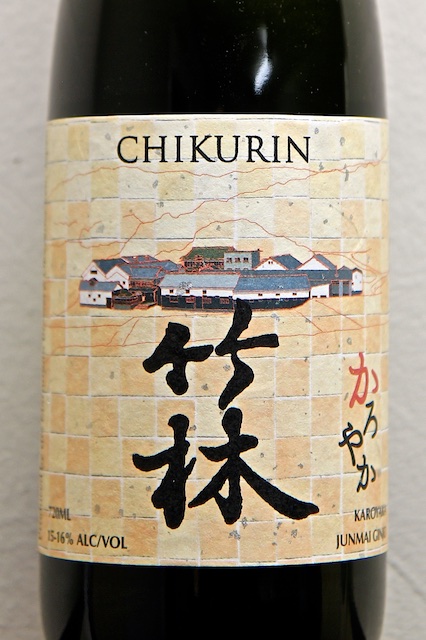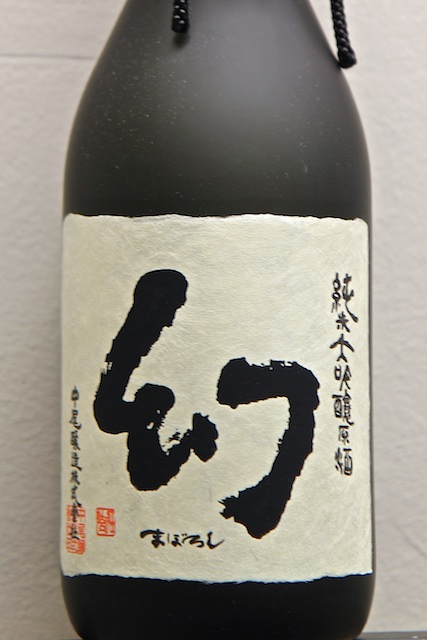Sake Night Again

In anticipation of the new San Francisco store and its soon-to-be-amazing sake selection, I've been doing a lot of sake tasting this week. I'm continually amazed and astounded by how much sake is out there, how different each selection is from the next, how wonderfully it pairs with food, and how fast I'm able to drink it. I drank A LOT of sake last night (and most of it went down before I knew what happened). I still remember walking through Tokyo one morning and seeing that Japanese businessman in a full suit outside a sake bar, sleeping on the sidewalk with his briefcase for a pillow. It can happen that easily! You just need to lie down, wherever you are. I whipped up some ramen last night and got down with some interesting bottles. Here are a few new selections that are now available in the store:

I just like looking at the label for this one:
Taiheikai Tokubetsu Junmai Sake $27.99- I really enjoyed this one, mainly because it has so much going on in right off the bat. There's a crisp, yet round fruitiness right on the first sip, but then it moves into a nutty richness with an earthy note on the finish that you usually associated with fermented products. Whereas some sakes are light and fresh, others are heavy and earthy, this junmai has a little bit of everything. It's brewed by the Huchu Homare brewery in Ishioka, about an hour from Tokyo by train. The region is renowned for its soft, iron-free water.

Shichi Hon Yari Junmai Nama $27.99- The Shichi Hon Yari label celebrates the seven spearsmen who became legends at the battle of Shizugatake fought just outside the town of Kinomoto in 1583, where the Tomita brewery is located. What's cool about the Tomita brewery is that they use mineral water that runs from the nearby Ibuki mountains down to their village, and the water is so clean and pure that they don't have to filter it (I have actually drunk river water straight out of a mountain stream in Japan and can vouch for this incredibly purity). The junmai nama is quite earthy and robust on the palate with mushroom flavors and a tanginess from the yeast on the finish. I really, really enjoyed this.

Shichi Hon Yari Hiyaoroshi (Fall 2015 release) $32.99 - I only got a few bottles of this and most of it went home with the staff. It's a special seasonal release from Tomita made from Yamada Nishiki rice and bottled without filtration. It's quite robust, but with a creamier, rounder fruit-focused palate with stands in stark contrast to the earthiness of the standard junmai nama. YUM.

Chikurin "Karoyaka" Junmai Ginjo Sake $36.99- Those looking for an elegant sake, look no further. This is clean and pristine sake of the highest order. The Chikurin is made by Marumoto Brewery, which was founded in 1867 at the base of the Chikurin-ji Mountains, in Okayama-ken, one of Japan’s most prized agricultural regions. The Brewery was originally called Shimizu-ya, literally meaning “spring water store” because it was built in the site of a great water source. Again, you can taste how important the water is here because of how clean the sake is on the palate. Marumoto is also known as the "farmers' brewery" because they actually grow their own rice. Farm to bottle, baby.

Maboroshi Kurobako Junmai Daiginjo Sake $149.99- If you want to big a big-time sake baller, then you can roll out with the Maboroshi Kurobako junmai daiginjo sake with its big fancy box and serious sake flavor. It's made by the Nakao Sake Brewery located in Takehara, a historical city on the coast of the Island Sea in Japan's Hiroshima Prefecture. In the late 1940s, director Nakao Kiyomaro started a serious study of yeast culture to see which strains created the best flavors in sake. The most-celebrated of these was named "apple yeast" because it could be derived from the skin of an apple. After learning how to fully-implement the yeast into his starter mash, Nakao Kiyomaro debuted the Maboroshi Kurobako at the 1948 competition for new sake and took first prize. The sake is still faithfully recreated today and available for a high-price. It's worth it, though. This is utterly divine liquid. Pure, elegant, and clean on the palate, like the finest Champagne, but of course without bubbles and made from rice instead of grapes.
I finished my night with the Maboroshi and woke up in the guest room at around 2 AM, fully-clothed.
-David Driscoll
